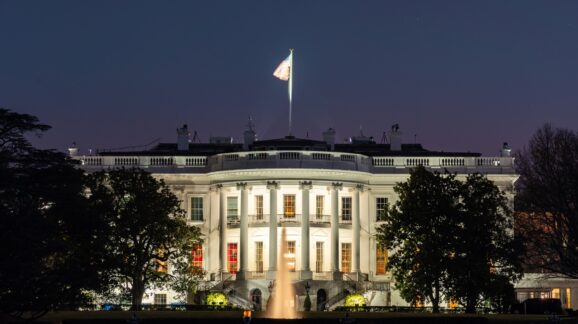Kamala’s Opportunity Agenda for Black Men: Regulatory frameworks masquerading as economic help

Photo Credit: Getty
Recent developments signal a troubling trend for America’s small businesses, one that could alter the nation’s entrepreneurial landscape in a big and detrimental way.
The Biden administration’s deepening involvement with America’s budding entrepreneurs is not just about providing assistance but steering the direction of small business through regulations and public-private partnerships aimed at progressive conceits such as so-called green energy. This agenda is newly reinforced by Kamala Harris’s announcement of her “Opportunity Agenda for Black Men,” complete with forgivable loans.
Back during National Small Business Week in April, Joe Biden praised small businesses as the “engine of our economy.” Yet, as I documented in Forbes, the accompanying proclamation celebrating the Small Business Administration’s longstanding tradition revealed an alarming shift in the federal government’s view of its relationship to the private sector. Federal “investments” in the form of contracts, taxpayer-backed loans, and government-favored initiatives increasingly are what shape the future of small business—not the competitive marketplace. The Harris plan would aggravate this unwelcome turmoil.
Small businesses caught in the gravity of big unstable government and corporate collaborations
Under this administration’s policies, small businesses increasingly find themselves swept up in the vortex of government and big business collaboration, a worrying development fostering not independent entrepreneurship, but seducing recipients of funds into alignment with progressive regulatory agendas. Instead of being champions of competition and innovation, small businesses are increasingly drawn into the government’s push for large-scale infrastructure and climate programs. These initiatives may not align with independently conceived needs of small businesses, but they most assuredly will serve as magnets furthering goals of those in power.
Encouraging small business dependence on government contracts instead of deregulation
As a casual look at any of Joe Biden’s barnstorming Inflation and Infrastructure Act speeches makes obvious, the Biden-Harris administration is inclined toward fostering dependence on government loans and contracts over easing the burdensome regulations that disrupt small business growth. This not only ties small businesses to immediate political priorities but encourages them to align with future federal initiatives, deepening an artificial government/business relationship untethered from consumer demands and market-based competition.
Procurement power skews markets and creates wasteful spending
This regulation-by-procurement and subsidy is not new; but their escalation in the wake of recent spending bills represents an alarming shift in the broad economy to which Congress must devote far more attention. By exploiting federal outlays and procurement power to shape outcomes, the government is able to launder regulation, manipulating industries and increasingly small business without even the courtesy of a notice-and-comment rulemaking. Government-favored firms enjoy undue advantages in the form of funded rather than unfunded mandates, baking in distortions and inefficiencies from which it will be difficult to disentangle. As small businesses become intertwined in these seductive “opportunity agenda” webs, they lose their independence and members of the public suffer in their roles as both taxpayers and consumers.
Pushing social equity agendas through small business at the expense of taxpayers
Even before the Harris announcement, social equity initiatives were increasingly being filtered through small business programs, with the government directing funds and attention to select sectors and demographics. Buying votes in so brazen a manner is shocking, and these promises to redistribute wealth come at a cost—both for taxpayers and the broader small business community. Equity-focused programs expose taxpayers to the politicized creation of markets that depend on government handouts rather than consumer demand. These risky and fragile artificial constructs lack the consumer-focused foundation necessary for long-term sustainability.
Cracks emerging in the foundation of small business growth
Even without the federal government manipulating small business with subsides and loans with strings attached, small businesses face regulatory challenges that ought to be the real focus of both political parties. Regulatory burdens remain high, particularly for firms with fewer than 50 employees, which, as noted by the National Association of Manufacturers, bear disproportionate compliance costs. A recent House Small Business Committee hearing, for example, revealed alarming non-compliance with the Regulatory Flexibility Act, signaling that regulatory relief for small business is not being prioritized by federal agencies.
Small business prosperity requires regulatory liberalization, not destructive handouts
Small business prosperity cannot be engineered through government dependency. The Biden-Harris administration’s approach to small business and economic health generally is awash with contradictions. While it offers increased funding and what it dubs opportunities through federal subsidies and contracts, it simultaneously deepens regulatory entanglements.
Easing regulatory burdens remains the best lubricant for true entrepreneurship, letting businesses to flourish on their own merits. Congress must wake up to the federal government’s own unprecedented threats to the independence and vitality of America’s small business community. The newly proposed “Opportunity Agenda” is just the latest example of the tendency of policymakers to pursue a disturbing fusion of business and government.
For more detail, see Forbes, “Small Business, Big Government Intervention.”